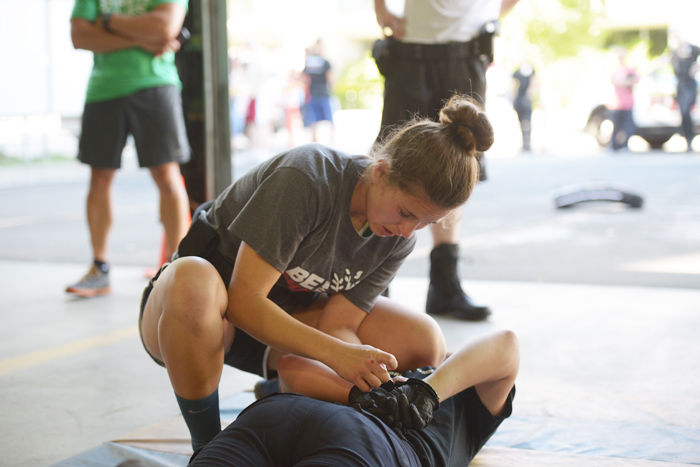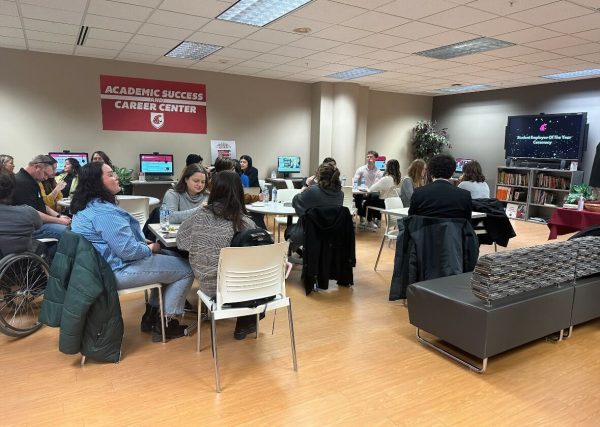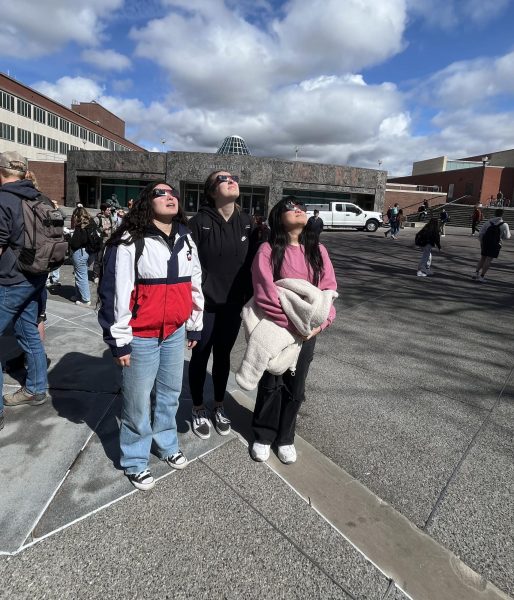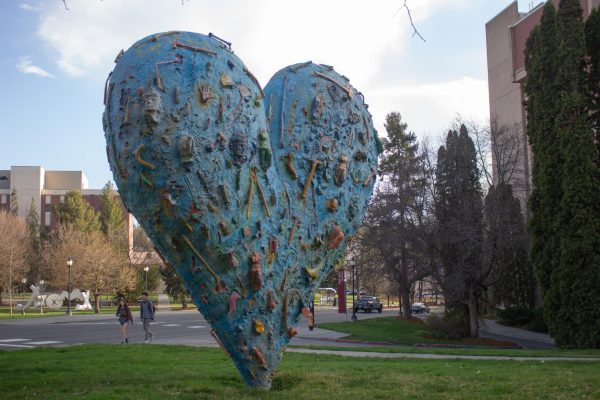Fighting through the pain
August 22, 2016
{{tncms-asset app=”editorial” id=”d9740d62-681f-11e6-be26-eb266ff323ed”}}
Emma Smith stood alone as pepper spray wafted through the sweltering afternoon air.
Friday marked the sixth day of defensive tactics training for the WSU Police Corps cadets. Students filtered past the simulated combat outside the WSU police station, many stopping to watch.
“They really crowd around when you get the screamers,” joked third-year cadet Calen Roberts. “They’re welcome to stand and watch, and laugh and take pictures. You’ll see, they’ll look horrible.”
Inside the yellow tape lining the perimeter, a group of about 60 formed a mass of noisy energy and nervous conversation.
Before the first spray stained the air, two Pullman police officers stuck their fingers up to evaluate the wind direction. There was a light-hearted menacing in their casual preparation for the cadets’ ordeal.
“I’d rather get tazed than do this again,” WSU Police Officer Joseph Kirshner. “When the Taser’s done, it’s done. Pepper spray is the gift that keeps on giving.”
Smith grew tense as she listened to Pullman Police Sgt. Dan Hargraves’ final instructions. Second- and third-year cadets yelled encouragement from upwind positions, avoiding the noxious fumes.
There was less than a minute left. Hargraves approached Smith’s battle buddy, Chris Shea, and traced a cross in front of him with the pepper spray bottle to show him how to incapacitate an assailant.
“Up, down, cross the eyes,” he said, pointing at the target – Smith’s face.
{{tncms-asset app=”editorial” id=”fddf2c2c-681f-11e6-aadf-6b80718edeae”}}
Emma Smith is one of 25 first-year recruits who train as cadets in a program that features multiple dimensions of law enforcement, from physical fitness to traffic control, and hands-on defensive tactics like pepper spray.
Smith is a 20-year-old from Spokane. Her fellow cadets said they respect her for her compassion, heart and natural energy. She is double majoring in criminal justice and psychology.
“I love psychology, and I’m a people person,” she said. “Getting to know why people are upset, having empathy, is so important … If they call you names, if they’re rude, being able to not take it personally and assess the situation for what it is.”
“Open!” Hargraves yelled. Smith’s eyes widened briefly before two streams of pepper spray soaked her face.
Her mouth fell open in shock and she blinked rapidly. Suddenly blind, she reflexively wept, coughed, gagged and fought through intense pain to find her battle buddy’s flat black punching bag. She kicked, punched and elbowed the bag for more than a minute, simulating a suspect resisting arrest.
Nearby, cadets yelled, “Use your verbals,” “Find ‘em, find ‘em,” “Throw the hands” and “Don’t touch your eyes.”
“I don’t want to hurt you,” Smith yelled. She was the only cadet who made this expression of sympathy during battle.
{{tncms-asset app=”editorial” id=”40951afe-6820-11e6-8ba1-1352d9d8669a”}}
A whistle blew. She rushed inside the police station garage. Still half incapacitated, she handcuffed a fellow cadet, who lay prone. She then stumbled to a squad car parked in the garage, while searching for the correct key so she could unlock the squad car door and radio for backup.
Her tasks complete, Smith dunked her face in a blue plastic bucket filled with baby soap and water. Roberts held a green hose, spraying water in her eyes.
“It’s a process, it’s something you gotta do,” said second-year cadet Pacer Said. “It’s all mental. Sometimes it takes a full hour (to recover), then you have crystals on your eyebrows and eye lashes that reactivate when it melts.”
Smith lifted her head, spit on the pavement and resumed a posture that resembled a prayer mixed with bobbing for apples. Despite the pain, she radiated a sense of joy after she finished recovering.
“I can’t even tell you what it’s like,” Smith said, “when there is snot coming out of your nose, with the pain, burning. But I just kept my eyes closed. It was crazy … It really sucked and it hurt. I was afraid I would have trouble, but then I told myself, ‘Keep calm, keep calm.’ At times I hyperventilated … you kind of have to block things out.”
Smith was surrounded by fellow cadets who ensured her comfort, despite the obvious pain. She remarked that she felt like she was part of a bigger family in the criminal justice department, and when she worked with the WSU Police.
“We’re all here for each other and we do this together,” Smith said. “It’s definitely worth it.”






















